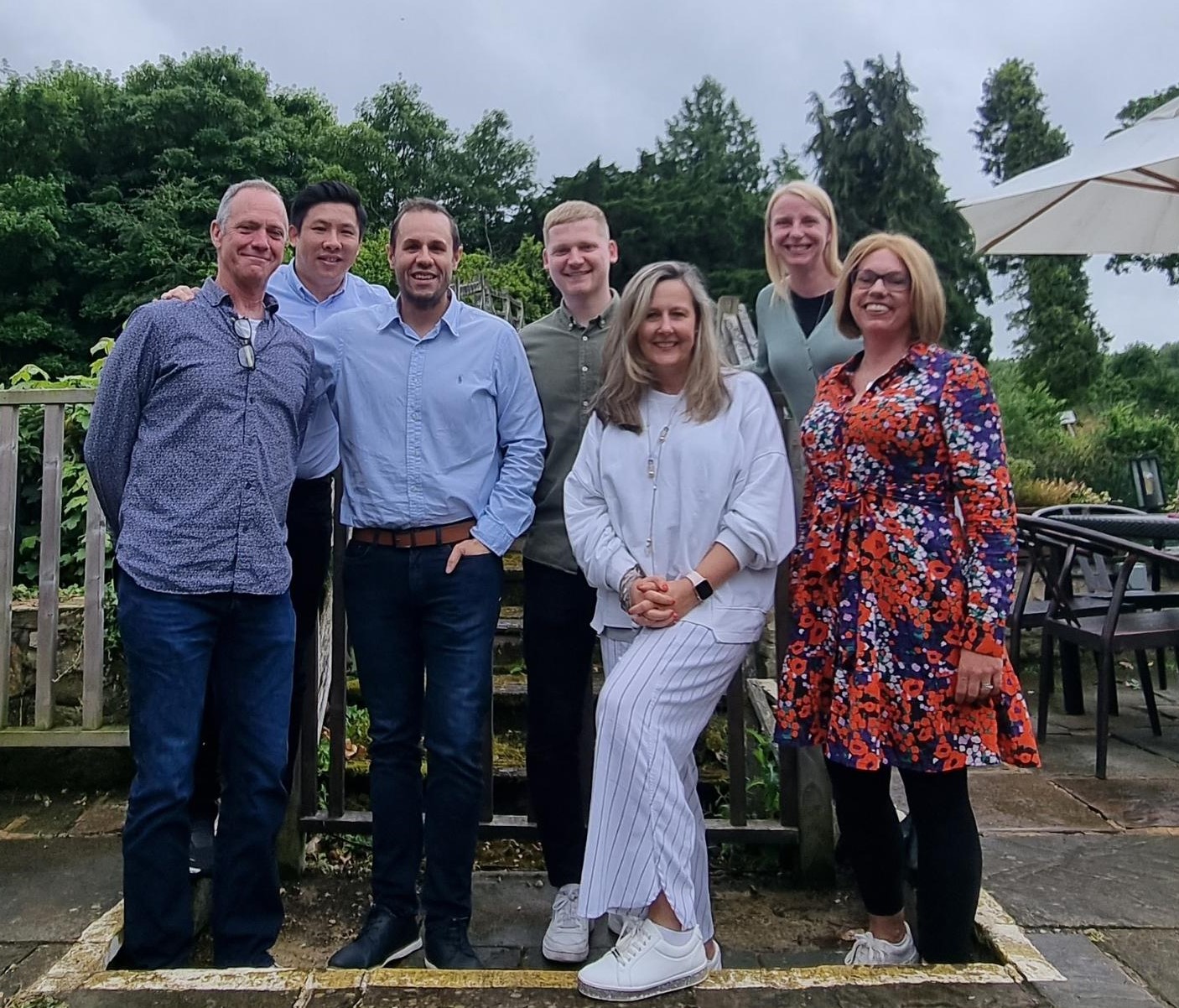Like many of us, you may have already set yourself some lofty resolutions this January. And (also like many of us) you may have already broken them.
When it comes to creating behavioural change, ‘nudging’ is now commonplace in politics and public policy. Nudging is about making small changes to environment, communication etc. which help people behave and make decisions that are better for them and for society. Similarly, ‘continuous improvement’ is popular in business for process or product development. Sir Dave Brailsford has made ‘marginal gains’ a common phrase through his amazing work with the British Cycling Federation, which focused on improving many factors by 1% in order to benefit from the compound effects. This took them from them from an ailing state to eight gold, two silver and two bronze medals at London 2012, and six gold, four silver and one bronze at Rio 2016.
Engaging in small and simple tweaks to our daily lives, we can achieve marginal gains in our self-care and development. In a similar spirit, the Guardian recently published a list of 100 simple easy things you can do to improve your life – check it out!
Applying nudging, continuous improvement and marginal gains to leadership development
We thought we would apply this thinking to leadership development, so we pooled the amazing collection of brains we have at Edgecumbe and came up with this list of 50 simple, quick and free things anyone can do to improve their leadership. You don’t even need to be a people-leader – these behaviours will help you to better collaborate, innovate, focus, and make effective decisions. You could choose to commit to just one or two of these ideas to really focus on doing them consistently and embedding them as new habits, or you may like to experiment with more and see what works for you.
All we ask is that you let us know how you get on. We’ll be talking about this on LinkedIn and Twitter too, so we’d love to hear about your experiences.
- When writing an email or message, replace the word ‘but’ with a full stop or ‘and’ if you are responding to someone else’s proposal or idea.
- In your 1:1s, ask what is currently blocking the person from achieving what they want to, and what (if anything) you can do to help them overcome the blockage.
- Ask someone what’s inspiring them now.
- Always say please and thank you.
- Each week, encourage your team to observe what they have achieved that week.
- Before you send an email, stop and read it from the perspective of the receiver.
- Find a way to tell a story about yourself or someone else to elevate how you sell an idea or proposal.
- Develop a simple answer to the question ‘what will our team be known for in 1-, 3- and 5-years’ time?’ and communicate this vision to your team regularly. Better still, develop the vision with your team.
- At the end of your meetings, take five minutes and ask everyone to say what they are pleased they did in the meeting, and what they will work on for next time.
- Next time someone performs poorly, let them know clearly that their work has not met standards or expectations, and ask what support they need to help them improve it.
- Ask at least three open questions (like ‘why’ or ‘how’) and listen fully to the answers in between each one before offering your own opinion or idea.
- Commit to a short catch up (e.g. 15 minutes) with each of your team members once per week.
- Make one or more of the management reports you receive regularly (e.g. financial data, sales, operational results, etc.) accessible to your team at the same time as you receive it.
- Call someone in a different team whom you don’t know well and ask them what they are working on/what their pain points are.
- When a team member asks you a question, ask them what they think instead of answering them directly.
- At the end of each meeting, thank a colleague for something you appreciated.
- Write down what your key values are and recognise them in your day-to-day operations.
- Ensure each member of your team has a few (2-5) SMART objectives they are working towards.
- Think about how long you can operate well before you need a few days’ break. Then book this holiday in your calendar in advance, even if you don’t have any plans yet.
- Ask a colleague for some honest feedback on how you could be ‘even better if…’.
- Reflect on what an ideal team meeting looks like. Write down the key agenda points and try to follow these in your next team meeting.
- When you start work each morning, send a quick message to a different colleague each day (e.g. ‘good morning, how are you?’) – or say it in person if you are in a shared workspace.
- At the start of any 1:1 or team meeting, ask how others are feeling before launching into the meeting agenda.
- Look for a detail in someone’s work and give them specific praise for it.
- When you come upon someone from your wider team whom you don’t know, ask them about their job and point out how they contribute to something bigger.
- When an idea is being evaluated, encourage a team member to ask for feedback from several other departments.
- Ask each of your team if they are clear what is expected of them (quality and quantity) and discuss their answer to ensure you are aligned.
- Write down the key strengths of each member of your team and how they use them in their job. If you don’t know, ask!
- Review your to-do list or calendar and ask yourself of every entry whether this is something that only you can do. If not, look to delegate it to enhance someone else’s experience.
- Next time you are preparing to present an idea/argument/proposal, consider whether you have done enough to explain the ‘why’.
- Consider people you would benefit from building a stronger connection with (internally or externally to your organisation) and give them a call.
- When evaluating a piece of work, or running 1:1s, give developmental feedback using the phrase ‘even better if…’.
- Take a step back to consider and write down why your vision is personally important to you.
- Evaluate how many hours’ sleep you need to be at your best and find ways of ensuring you get this amount of sleep more regularly.
- Try to work out each team member’s preferred way of communicating and try to use these, where possible. Are they more comfortable with an instant message, an email, a voice call, a video call, or a face-to-face conversation?
- Introduce two people to each other who could be of value to each other or who have similar values/interests.
- Book time to spend with a coach/mentor/sounding board and reflect with them on your biggest current challenge.
- When something goes wrong in the team, own it personally and discuss with your team (without blame) the issue and ideas to rectify it and avoid it in the future.
- Consume a book/audio book/podcast related to personal growth and/or leadership.
- When talking with your team, discuss the long-term future and what it could look like.
- Trust and allow team members to own their work. Let them manage how and when they do it.
- When discussing a change, ask what impacts it would have on other parts of the organisation.
- Think about something you can do to stretch each of your team members a little outside their comfort zone and what support you can provide to them when doing this.
- Next time someone challenges your team or someone in it, make sure you are involved, and your team know you will support them.
- Meet with your team in its entirety at least every fortnight.
- Point people in the direction of others in the business who you know could help them with their problems.
- Encourage flexible working and work-life balance in your team and lead by example (e.g. balancing working at home with working onsite, not sending requests via email during evenings/weekends).
- In every interaction, try to make the person smile or laugh at least once.
- In your team meetings and 1:1s, regularly ask your team members what is blocking their progress and what could help them to perform even better.
- Evaluate the ingredients you have in your team in terms of personalities, skills, strengths, gender, ethnicity, etc. and ask yourself what your team needs to increase the challenge, complementarity and difference of ideas and opinions.
If any of these ideas resonated with you, then we’d love to hear from you. Which changes were reaped the most benefits for you? And if you’d like to learn more about how we support individuals, teams and entire organisations with leadership development, please get in touch.





















